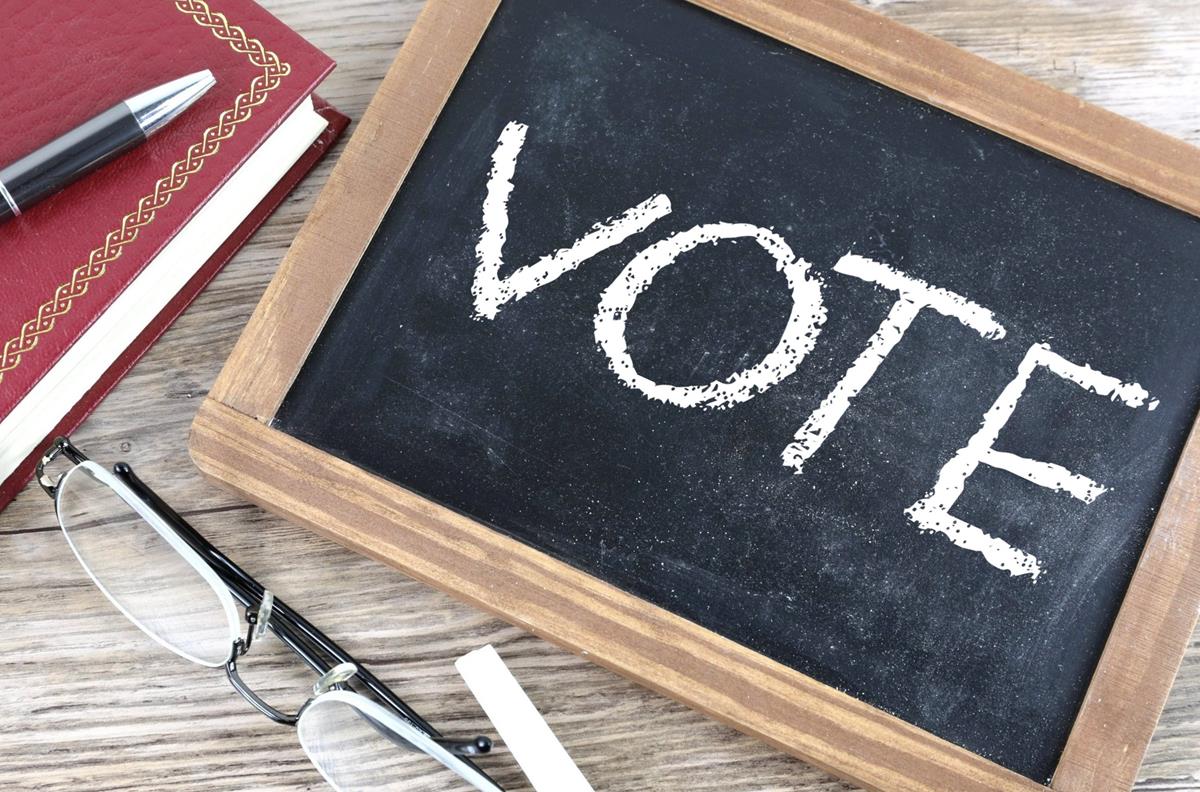Katie Palmer
Introduction
In 2023, the Florida legislature passed a bill that restricted access to abortion after the gestational age of 6 weeks.[1] While the legislation provided exceptions for certain circumstances, including those in which a pregnancy may endanger the life or physical health of a pregnant woman,[2] it greatly restricted access to abortion for most pregnant individuals after 6 weeks. In an attempt to overturn the new legislation, numerous individuals and organizations, including Planned Parenthood of Southwest and Central Florida, sued the State of Florida on the grounds that the new law violated the right to privacy guaranteed by the Florida Constitution.[3] Despite their attempts to nullify the new piece of legislation, the Supreme Court of Florida held that “there is no basis under the Privacy Clause to invalidate the statute.”[4]
Even after losing this judicial battle, critics of the new law were not prepared to give up.[5] Instead, they turned to the last remaining avenue for relief: amending the state’s constitution to protect Floridians’ abortion rights.[6]
Resistance to Constitutional Amendments Protecting Abortion Access
Enacting constitutional amendments to protect abortion access has become increasingly common since the passage of Dobbs v. Jackson Woman’s Health[7] in 2022. [8] As of February of 2024, California, Kansas, Kentucky, Michigan, Vermont, and Ohio have all passed constitutional amendments protecting abortion access.[9] While growing in popularity, these amendments did not reach their respective ballots without encountering resistance from their fair share of opponents.[10]
In Ohio, several members of the Ohio Ballot Board refused to add such an amendment to the ballot, claiming that “the ballot language [was] misleading, contain[ed] material omissions, and [was] improperly argumentative.”[11] To begin with, these board members took issue with the ballot’s substitution of the phrase “reproductive medical treatment” for “reproductive decisions.”[12] In response to their concerns, the Supreme Court of Ohio stated that the phrase “reproductive medical treatment” was “imprecise at worst,” but “[did] not render the ballot language misleading.”[13] The board members also took issue with the ballot’s proposed phrasing of “citizens of the State of Ohio” instead of “State,” which the court agreed could lead to voter confusion.”[14] Finally, the board members argued that the ballot language was misleading about “whether the proposed amendment protects a woman’s right to continue a pregnancy,” but the court responded that their “argument lack[ed] merit because it [was] an inaccurate characterization of the ballot language.”[15]
After addressing each of the board members’ concerns, the court called upon the ballot board to reconvene and reword the phrase “citizens of the State of Ohio,” but otherwise upheld the proposed amendment.[16] Following the court’s decision, the ballot board placed the amendment at the top of the ballot for the state’s next general election.[17] Ohio voters subsequently approved the amendment on November 7, 2023, thus enshrining the right to an abortion in their state’s constitution.[18]
In Michigan, the constitutional amendment faced similar opposition before it made its way onto the state’s general election ballot.[19] Although the proposed amendment received 753,759 signatures, which was the largest number of signatures an amendment has received in the state’s history,[20] the Board of State Canvassers refused to approve the amendment for placement on the ballot.[21] Joined by intervenor defendant Citizens to Support Michigan Women and Children, the Board of State Canvassers, among others, argued against including the proposed amendment on the ballot because “there [was] [in]sufficient space between certain words of the text of the proposed amendment.”[22]
In a one-page opinion, the Supreme Court of Michigan ruled that the alleged spacing problem did not change the meaning of the amendment and ordered the Board to certify the petition.[23] Following this order, the state’s next general election ballot included the proposed amendment, which passed by a wide margin on November 8, 2023, and went into effect on December 23rd.[24]
An Advisory Opinion from the Supreme Court of Florida
Like those in Ohio[25] and Michigan,[26] opponents to the constitutional amendment in Florida were not willing to allow the amendment onto their ballot without putting up a fight.[27] The Attorney General of Florida, joined by several organizations, petitioned the state’s highest court for an opinion about the proposed amendment.[28] Following this petition, proponents and opponents alike filed briefs arguing their position, and the court heard oral arguments on February 7, 2024.[29]
After hearing from the involved parties, the Supreme Court of Florida addressed each of the concerns expressed by opponents of the proposed amendment.[30] First, the petitioners argued that the amendment violated Florida’s single-subject constitutional requirement[31] because it reached two issues: “abortion before viability of the fetus and abortion based on a healthcare provider’s authority.”[32] However, the court disagreed, stating instead that the amendment complies with Florida’s constitutional requirements because “viability and maternal health are interconnected matters related to the subject of abortion.” In response to the petitioner’s concern that the proposed amendment would mislead voters,[33] the court held that “there is no basis to reject the proposed summary and ballot title” as both are clear and accurate.[34] Finally, the court concluded that the proposed amendment is facially valid under the U.S. Constitution and approved the amendment.[35]
Conclusion
Following the court’s ruling, the amendment is set to appear on the ballot in November 2024.[36] Advocates for and against the amendment have done all they can to alter the fate of abortion access in the courts,[37] but the voters will ultimately determine the fate of Floridians’ access to this facet of health care.[38] Although the referendum will need 60 percent support to become law, organizations like the Florida Women’s Freedom Coalition are convinced that it will reach this high threshold.[39] As of November, Florida may become the next state to add abortion access to its citizens’ constitutionally protected rights.
[1] Fla. Stat. § 390.0111 (2023).
[2] Id. at § 390.0111(1)(a).
[3] Planned Parenthood v. State, No. SC2022-1050, 2024 Fla. LEXIS 483, at *8 (Fla. Apr. 1, 2024).
[4] Id.
[5] In re Advisory OP. to the AG re Limiting Gov’t Interference with Abortion., No. SC2023-1392, 2024 Fla. LEXIS 484 (Fla. Apr. 1, 2024).
[6] Id. at *3.
[7] See Dobbs v. Jackson Women’s Health Org., 597 U.S. 215 (2022).
[8] Mabel Felix, et rel., Addressing Abortion Access Through State Ballot Initiatives, KFF (Feb. 9, 2024) https://www.kff.org/womens-health-policy/issue-brief/addressing-abortion-access-through-state-ballot-initiatives/#:~:text=Since%20Dobbs%2C%206%20states%20%E2%80%93%20California,abortion%20prevailed%20in%20every%20state.
[9] Id.
[10] See State ex rel. Ohioans United for Reprod. Rights v. Ohio Ballot Bd., 2023-Ohio-3325 (Ohio 2023).
[11] Id. at *P2.
[12] Id. at *P15.
[13] Id. at P*17.
[14] Id. at *P23-26.
[15] Id. at *P30-32.
[16] Id. at *P49.
[17] Julie Carr Smyth, Ohio voters enshrine abortion access in constitution in latest statewide win for reproductive rights, AP News (Nov. 7, 2023), https://apnews.com/article/ohio-abortion-amendment-election-2023-fe3e06747b616507d8ca21ea26485270.
[18] Id.
[19] Reprod. Freedom for All v. Bd. of State Canvassers, 510 Mich. 894, 894 (Mich. 2022).
[20] In Michigan, A Historic Victory for Abortion Rights, ACLU (April 6, 2023), https://www.aclu.org/news/reproductive-freedom/in-michigan-a-historic-victory-for-abortion-rights.
[21] Reprod. Freedom for All, 510 Mich. at 894.
[22] Id.
[23] Id. at 894-95.
[24] ACLU, supra note 10.
[25] See State ex rel. Ohioans United for Reprod. Rights v. Ohio Ballot Bd., 2023-Ohio-3325 (Ohio 2023).
[26] See Reprod. Freedom for All, 510 Mich.
[27] In re Advisory OP. to the AG Limiting Gov’t Interference with Abortion., No. SC2023-1392, 2024 Fla. LEXIS 484 (Fla. Apr. 1, 2024).
[28] Id., at *3-4.
[29] Id., at *4.
[30] Id., at *7.
[31] Fla. Const. art. XI, § 3.
[32] In re Advisory OP., 2024 Fla. LEXIS 484, at *7, *10.
[33] Id., at *16-22.
[34] Id., at *24.
[35] Id., at *31.
[36] Adam Edelman, Florida Supreme Court allows 6-week abortion ban to take effect, but voters will have the final say, NBC News (Apr. 1, 2024), https://www.nbcnews.com/politics/florida-supreme-court-abortion-rights-ballot-measure-rcna142568.
[37] See Planned Parenthood v. State, No. SC2023-1392, 2024 Fla. LEXIS 483 (Fla. Apr. 1, 2024); In re Advisory OP., 2024 Fla. LEXIS 484.
[38] Edelman, supra note 36.
[39] Ryan Lizza, Abortion Might Be a Winning Issue – Even in Florida, Politico (Apr. 6, 2024), https://www.politico.com/news/magazine/2024/04/06/abortion-rights-florida-anna-hochkammer-00150870.


